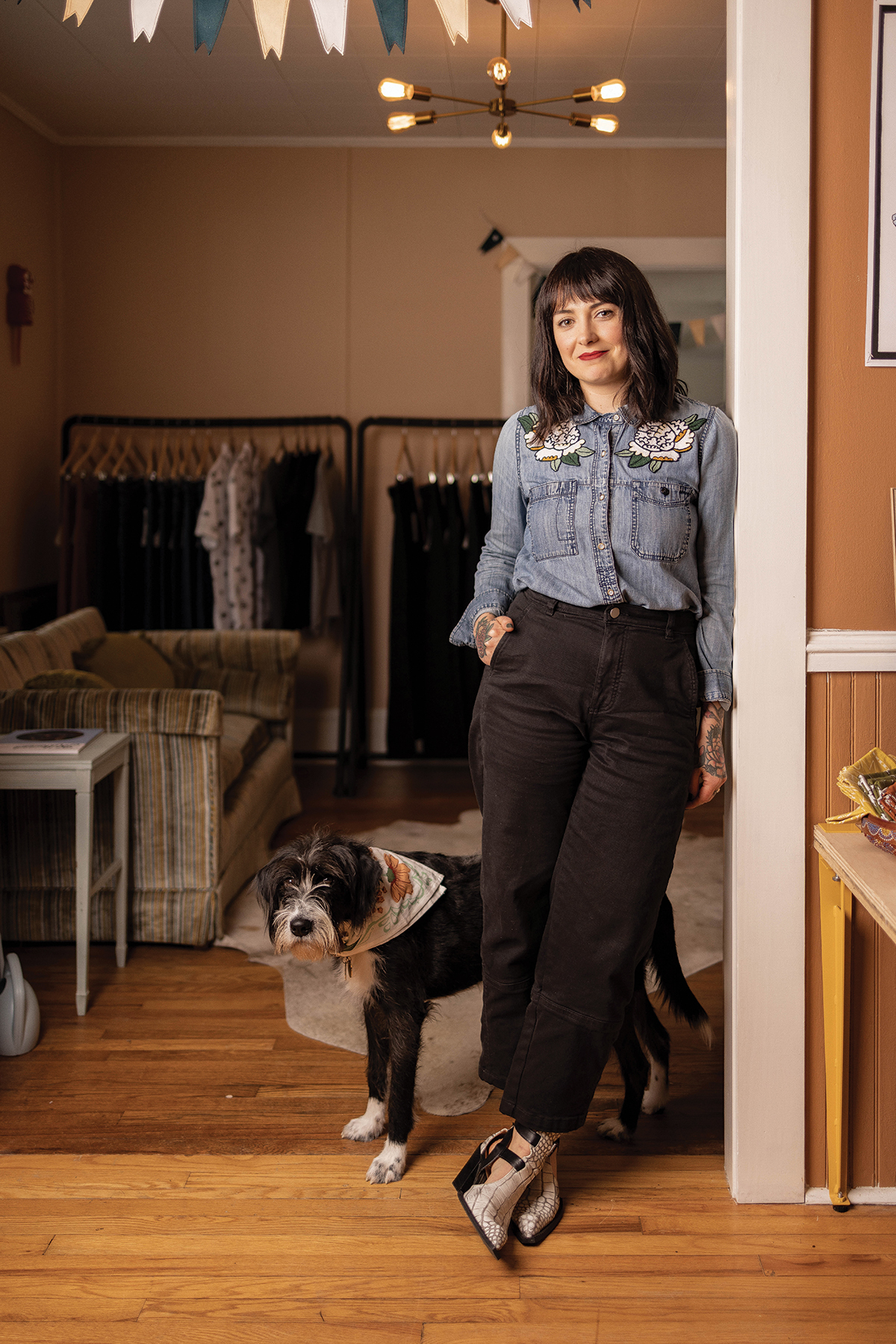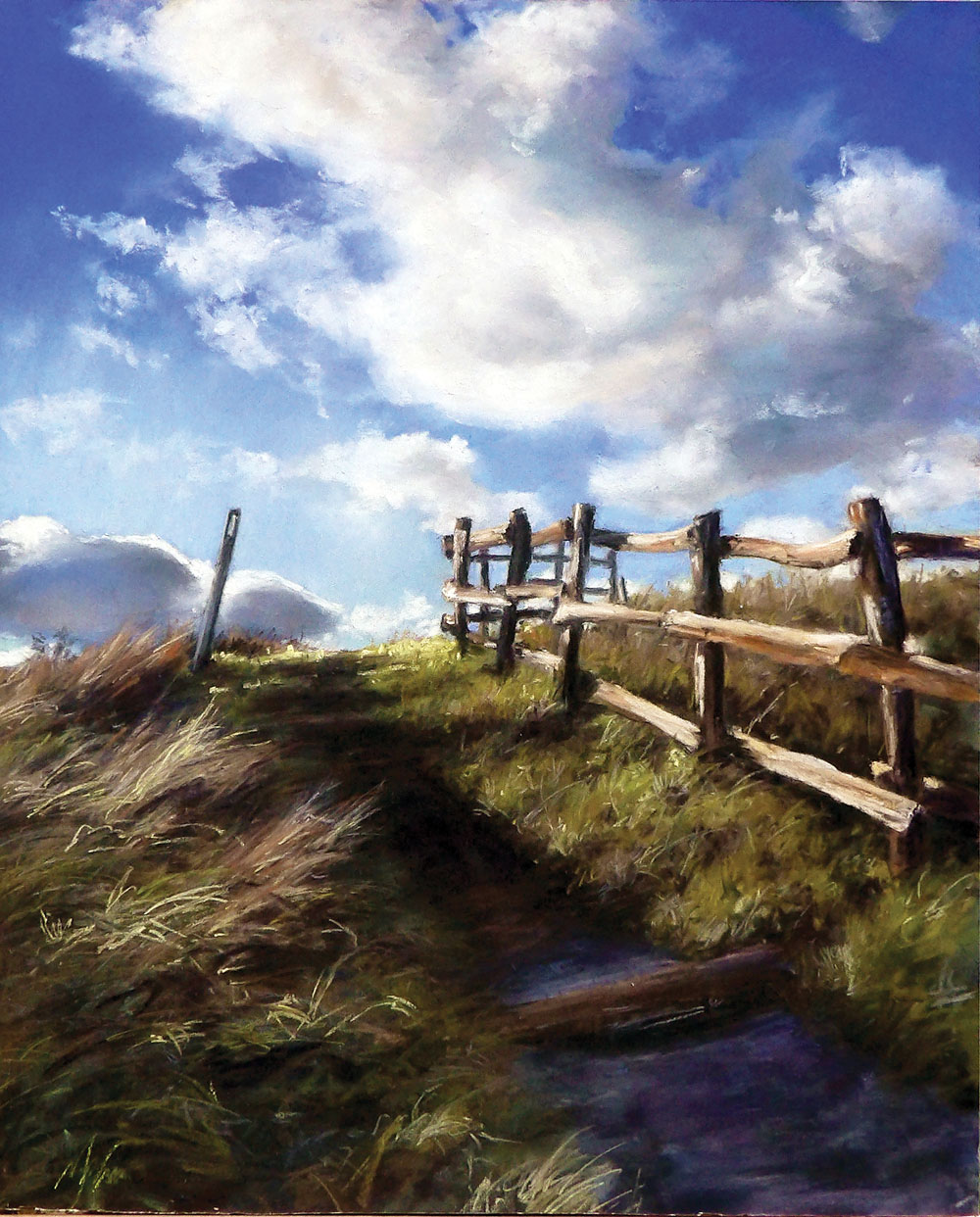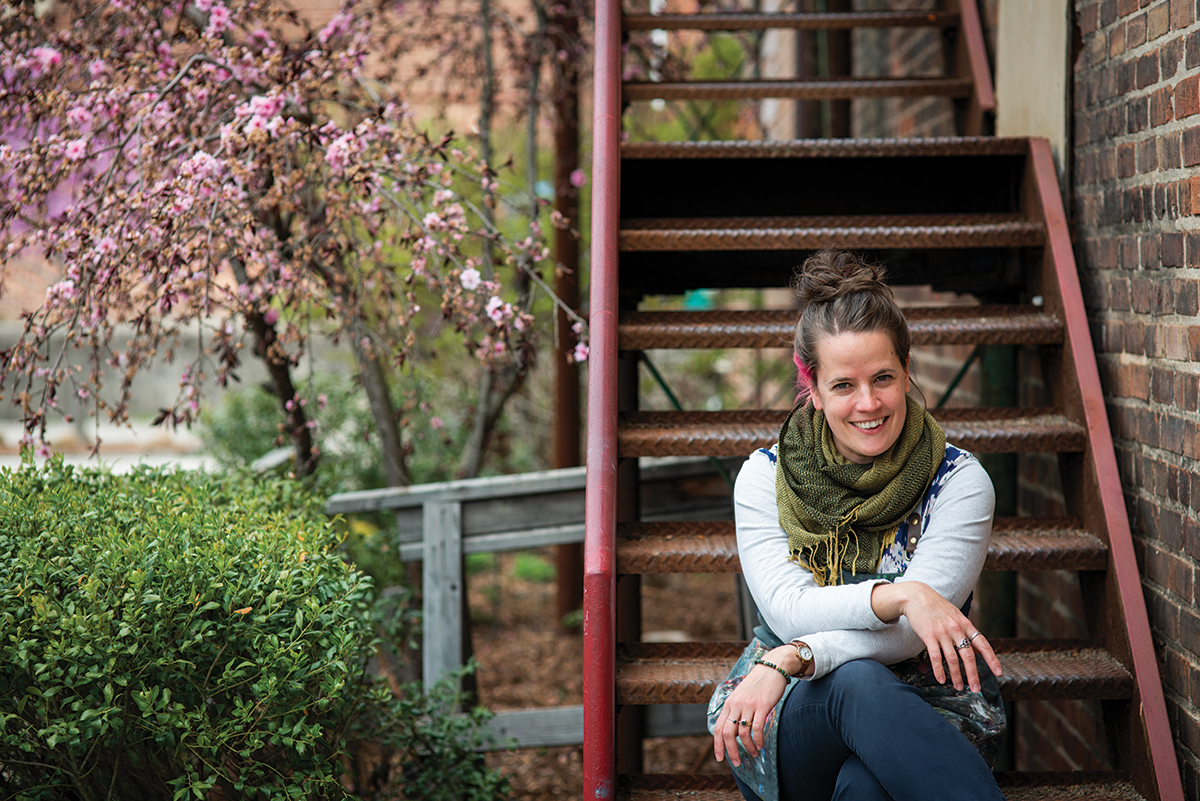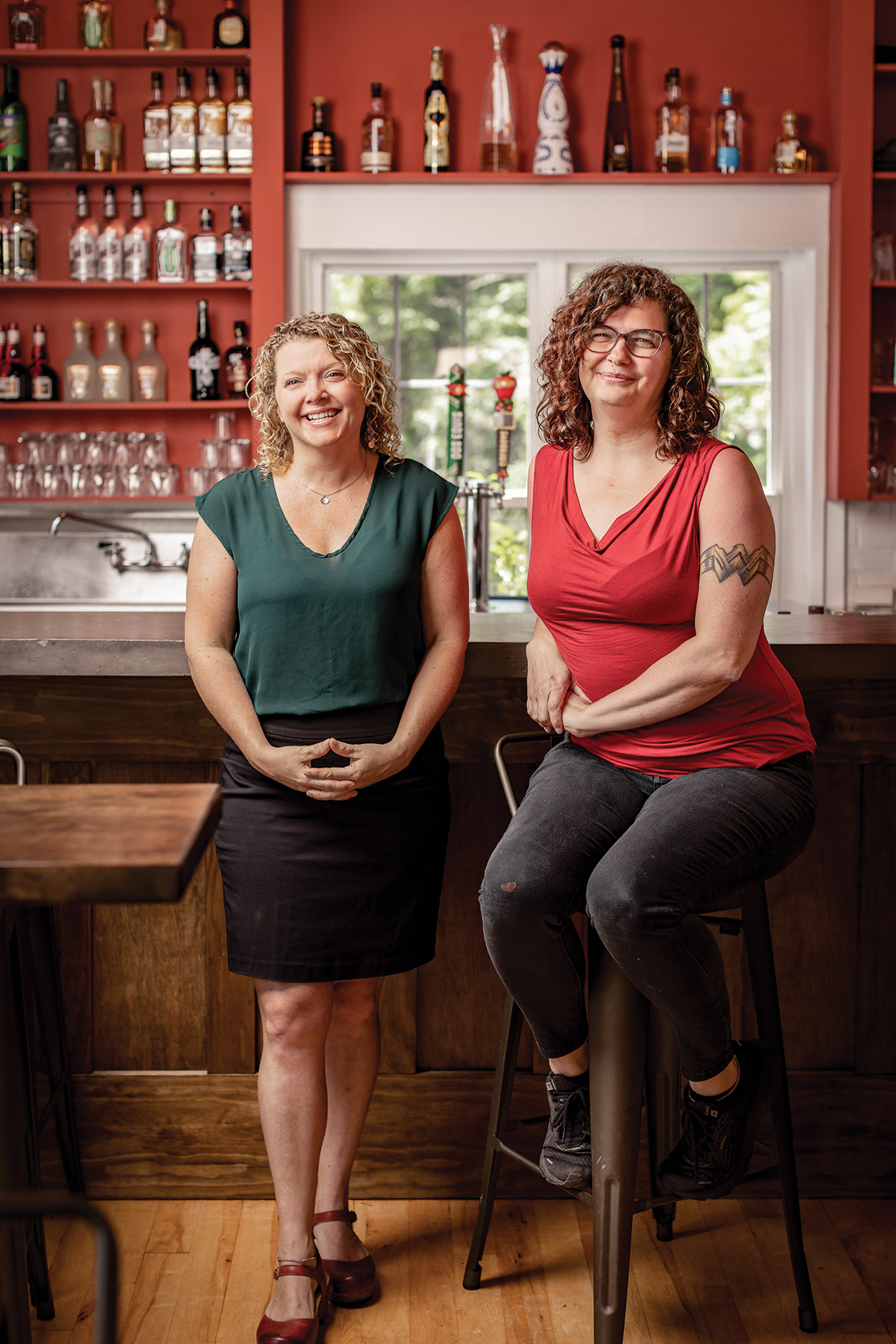Custom embroidery on a vintage machine makes a statement against “fast fashion”

Fiber artist Paris Evens King says, “My mom taught me how to sew when I was 7.”
Portrait by Jack Robert
Fiber artist Paris Evans King can claim a long family connection to the most tactile of the visual arts. Her beloved grandfather, Monty — “our family historian who has passed” — talked about his great uncle being part of Singer Sewing. Her great grandmother, Gladys, lived in Hickory and worked in a hosiery mill, and later upholstered cars. “Clients would drive from all over to have her work on their cars.”
King has been carrying on the family’s textile history with a growing line of one-of-a-kind chain-stitch embroidery that’s drawn both an online client base and a steady stream of customers to her Saluda studio, Milkweed.

King draws inspiration from her childhood in the mountains like this cozy cabin on an ochre jacket. Monty Dubose, King’s grandfather, on the left.
“My mom taught me how to sew when I was 7,” King says. And while she’s created work in other mediums — painting, pottery, mixed media, even pastry arts — embroidery remains her favored creative outlet. “There’s something about working with thread that’s the most enjoyable to me,” she says. “It’s nearly become a lost skill to sew and mend, while sewing was something most were once taught to do.” King is an advocate for mending and repurposing clothing as an alternative to the vast amounts of money spent to support the fast fashion industry, not noted for its environmental or social conscience.
King’s own work is exclusively on second-hand and vintage garments with an eco-conscious pedigree, and she encourages her clients to provide well-beloved clothing as her canvas. “I think we need to better normalize buying items we truly love, that are made to last,” she says. “The amount of resources that go into the garment industry, particularly fast fashion, is extremely detrimental to our environment.”

A glimpse at a recently completed commission piece; vintage style chain stitching on a lightweight wedding suit for the groom.
King’s embroidered patches and designs, applied to vintage denim jackets, suede shirts, or cotton blouses, among many other backgrounds, are all created by hand. “I draw up everything by hand, first with pens, as a sketch,” she explains. The designs are then transferred with an indelible marker onto a type of tear-away paper used for the purpose, which protects the fabric while the design is stitched using King’s prized vintage Singer Chainstitch from the 1930s, the thread guided by a hand crank and a foot pedal. “It’s very much like drawing or tattooing with thread. [The machine] requires a lot of oil to maintain in its proper working order,” she notes, adding that as a left-handed stitcher in a predominantly right-handed world, she’s had to reconfigure the machine to essentially run backwards. (She has another vintage machine being restored for her, one that will allow her to stitch more difficult fabric backgrounds, like hats, sleeves, back pockets, and pant legs.)

Cowgirl on a Vintage Wrangler Snap Button Up.
King grew up on the Carolina coast, in Charleston, but has deep family roots in the mountains, particularly Burnsville, where her Charleston-based grandparents had a mountain home, and from where her grandmother would take her along on drives to art markets during summers spent in cooler mountain air. “My heart has always been in these mountains,” she says, pointing out that her studio is named after the milkweed plants that grew near the Burnsville home.

King enjoys chain stitching freehand cursive on bandanas for clients. She often brings her machine to events with her to offer live chain stitching. She also creates one of a kind patches like this Western Cow Skull.
A few years ago, King was creatively frustrated working at a salon in Charleston. And then her grandfather’s death “turned my world upside down,” she remembers. “He helped me remember what’s truly important in life. I wasn’t in love with my career, and I missed working in a creative field.” Saluda had been one of the many stops on those childhood excursions with her grandparents, and so King and her husband, photographer Paul King, left the coast behind. She put her skills to more personal use by embroidering her husband’s wedding suit when the couple married last fall. “I love that we don’t have a stop light, that we’re steps away from hiking and waterfalls, being able to walk everywhere,” she says.

A traditional tattoo style rose and cobweb patch. All patches can be taken home and hand sewn on the desired garment.
Designing embroidered merchandise for Asheville-area businesses has been a new creative avenue for her, along with occasional commissioned work for ready-to-wear items. “Lately I’ve been making detachable collars using vintage fabrics and chain-stitching on them,” King says. “It’s a project I’ve wanted to work on for awhile, and they’re pretty adorable, if you ask me.”
Paris Evans King, Milkweed Chainstitch Embroidery, 481 Louisiana Ave., Saluda, 828-290-9268, milkweed.shop. The artist is among the 90 vendors at the 17th Annual Saluda Arts Festival happening Saturday, May 21, 10am-4pm, in downtown Saluda. (She’ll even be demonstrating on her Chainstitch machine.) Find her full schedule of market appearances at her Instagram account, @milkweedstitch



